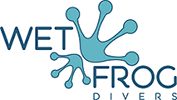
We care about environment
Komodo National Park is a UNESCO World Heritage Site
Komodo National Park has been established in 1980 with the main initial purpose to protect the unique Komodo dragons. Later its goals have been expanded for the protection of its further inhabitants, both on land and sea.
The 3 major islands of Komodo National Park are Rinca, Padar and Komodo. The park’s area presents a unique and rich biodiversity in marine environment as well as in flora and fauna.
In the last years Komodo National Park became more popular amongst tourists and as a main destination for diving and visiting the Komodo dragons.
The number of hotels, resorts, tour operators, boats, restaurants and bars has grown; which brings a positive effect on the development of infrastructure and the employment market. And of course, as we all know, such developments always bring more than the economic revival.
Waste Management in Indonesia and its barriers
A big country entering modern world
Waste Management in Indonesia is a complex and difficult subject. The growing amount of waste – all over Indonesia – is one of the major challenges for the country; its government and the population. The increasing consumption is bringing rising waste quantities. Convenience products find their way into the consumption word of Indonesia. Most of them are packed in plastic – usually single-use plastic.
However, not the amount or the materials of waste represent the difficulty in Indonesia but the waste management. Indonesia holds the least sustainable and the least developed system of waste management. The communities have no structures or systems for collecting, selecting or recycling the waste.
Mismanagement, missing knowledge, a lack of public awareness, technology development and the lack of investments are the major contributors to Indonesia’s waste problem.
Indonesia needs accessible and cost-effective systems and infrastructure for waste management. Local approaches, community-driven and supported programmes, personal involvement – all this is needed to establish a long-term, sustainable and effective waste management.
How can we and you contribute?
It’s not only the local person
When our guests see the rubbish floating on the beaches or in the waters of Komodo National Park, their first thought is about “them”, the Indonesian, local people who produce that rubbish.
Yet, stop! Think again!
How many small plastic drinking bottles did you consume during your holidays? And did you drink your juices and cocktails with a plastic straw? What did you do with your empty shampoo bottle, or your batteries? And when you stayed in a luxury villa or hotel, have you consumed those little, single-wrapped goodies?
Having read the passage above, you now understand how much waste – that the guests see in the waters and on land – has been actually contributed by the tourists themselves.
So, what now? What to do?
There are many little and simple ways to help. We at Wet Frog Divers commit ourselves in reducing waste and in avoiding the usage of single-use plastic items.
Therefore, on our boat you will find a gallon of water and cups. As safety is a first point on the boat, we cannot use glass on the boat. However, we replaced our glasses, plates and bowls with reusable items.
We try – and ask our guests – to separate cans from the rest of the waste that we bring to a waste disposal site in our town.
We refuse to use the plastic bags in the supermarket – a solid cotton bag is always with us. While shopping at the fruits & veggie market, we also use the cotton bag – one for all items.
We do not throw waste into the ocean or leave it on the beaches. We do not destroy green areas. No breaking, no touching, no damaging. Neither on land, nor under water.
What can you do during your holidays?
- SAY NO TO THE BIG 4s – Cups, Bags, Bottles, Straws
- TAKE HOME AND RECYCLE APPRORIATELY – Empty shampoo bottles & Co will be recycled more effectively and appropriately at your home country.
- AVOID UNNECESSARY PACKAGING – Don’t buy fruits and vegetables wrapped in plastic.
- SEPARATE THE WASTE – If there is a possibility, always use this chance.
- SHOW AWARENESS – whenever you have an option to show awareness of how to treat the rubbish and waste, do it.
- EDUCATION & KNOWLEDGE – it is important to transfer the knowledge to the youngest among us. If you have been involved in any waste management development programme or you are familiar with this subject – be it privately or professional wise – share your knowledge and give the local people a chance to learn more about it.
Why do we post it here?
We believe that knowledge and awareness about waste and its management is the key to change behavior sustainably. This is our little part of contribution. We love Indonesia and we love Flores Island & Komodo National Park. We want to be able to experience its beauty a long time. We want our and your children to experience this gem of the world.
Every day we learn more and more about how to help and what to do. There are many local projects and groups who actively concentrate on the waste management in Labuan Bajo and Komodo National Park. Herewith, we also would like to raise awareness about these people and to express our thank you to all of them.
We are not experts and our main business is diving, yet we believe that all the effort, the motivation and every little help will make big, positive changes to the future.
Let’s keep our diving area Komodo National Park precious.




